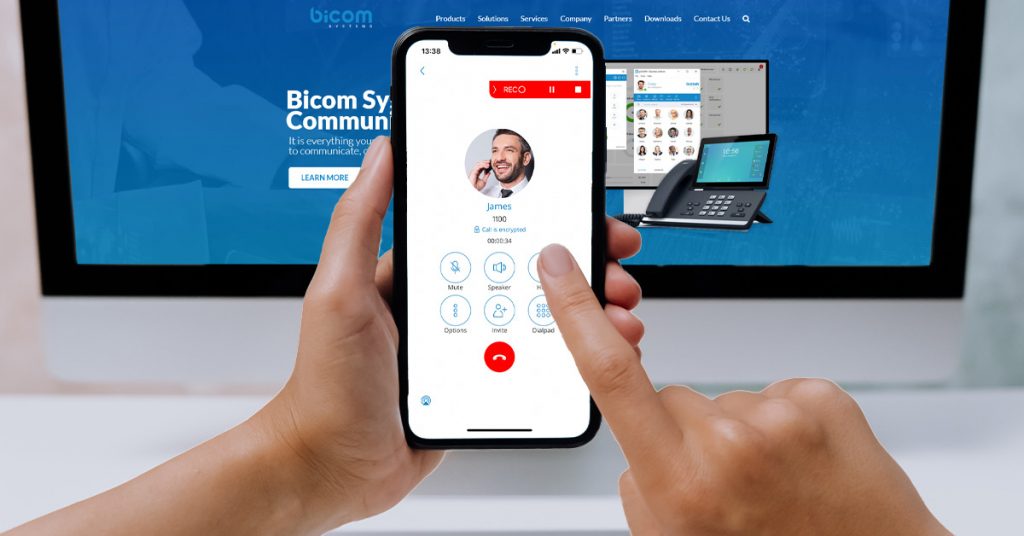Throwback – Usage of VoIP in the Academic Sector
Before we cover all the good things VoIP can bring to the academic sector, we would like to take a step back and see how things were headed pre-COVID-19.
During the mid-2000s, more and more network administrators employed at schools and universities were leaning towards VoIP architecture because routing from traditional PBX turned out to be costly and outdated. More concerns due to the scalability and security of analog telephone networks also rose. Conventional phone systems turned out to be high maintenance both in infrastructure and costs.
VoIP architecture was practical and desirable from the networks’ operation POV. To put it more simply, VoIP does not have to stay the same. The true advantage of VoIP networks is that they can evolve if the network managers know how to make it work. They can always upgrade to a broader range of services because an IP phone doesn’t have to stay static.
Fast forward to 2020, most schools and universities found themselves in a highly challenging situation. The academic sector had little to no time to adapt to the COVID-19 pandemic, and the quality of education tremendously suffered. This might be especially the case when we are talking about universities.
One of the most significant challenges academic institutions face during post-pandemic times is organizing the classes and inbound communication of all teachers, parents, and students working from home. Two years after the pandemic started, many schools and universities used a combination of in-person and remote work. Teachers and students adapted to the ‘new normal in the best possible way. Many schools and universities embraced digital learning because they did not have any other choice.
All things considered, VoIP can be very beneficial for schools and universities, and here’s why.

Key Benefits of VoIP in the Academic Sector
Superior Voice Quality – Since VoIP uses a private network for operations, voice quality is superior to landline phones. The administrative staff of academic institutions would be pleased to know that VoIP allows high-quality audio in HD without any interference. Communication is seamless and straightforward.
Enhanced Security Features – VoIP can be engineered for the most demanding requirements for data centers, so it’s crucially important that all data is entirely secure. Thanks to advanced 24/7 protection and threat detection in many VoIP solutions, data security is possible.
Cost-effectiveness – An outdated technology can be a burden for any organization. Imagine running a high-quality private school and dealing with multiple leases for lines and costly maintenance. For VoIP, all you need is a stable internet connection, and hardworking engineers will set up the hardware and software according to the preferences of any academic institution.
Scalability – VoIP can be scaled even to the enterprise level, regardless of the size of the academic institution. The scalability of VoIP can accommodate the growth of any business. This benefit might be crucial for universities with multiple faculties in several states.
Top VoIP Features for Schools and Universities
Audio and Video Conferencing – Most obvious VoIP features for the academic sector are audio and video conferencing. Unified Communications Systems offered in Bicom Systems product offering goes even further. Instead of switching through several applications, academic staff can access it from a single interface. This leads us to the next point.
Unified Communication – No matter which phone is the preference of teachers, students, or parents, unified communication can provide it. Usage of business communication apps on softphones can cut additional costs. On the other hand, already existing phones in schools inventory can be integrated into the VoIP platform, leaving all data transmission under a private network. This is why VoIP is flexible.
Many Endpoints – We already discussed this in the previous point, but adding many SIP endpoints if possible, the VoIP configuration is in question. Endpoints can vary from physical phones, Android or iOS softphones, ATA, or PBX. This leaves any academic institutions options to organize networks according to their preferences.
Hosted VS. On-premise – While discussing the financial benefits of VoIP for the academic sector, we tackled the topic of costs. Schools and universities also can choose between hosted and on-premise solutions. On-premise solutions might be cheaper every month, but institutions should keep in mind that they are responsible for maintaining them. Also, higher costs at the initial setup are unavoidable. The second option is a hosted solution, which means lower prices for the initial setup. The system provider is responsible for any upgrades and maintenance. From the financial POV, the provider charges a monthly fee for the hosted solution.

We have already prepared suggestions from our product suite, suitable for the academic sector. Here’s why you should choose them if you think about selling VoIP to schools and universities.
PBXware Hosted Solutions for Schools and Universities
Reliability – To deliver the best possible PBXware hosted solutions, we partnered with the most reliable companies in the tech business. You don’t have to think about choosing between different manufacturers. You only have to explain the requirements of an academic institution that could be your client, and we will handle the rest.
Security – Earlier, we mentioned how important data protection is. Advanced SIP protection and non-stop monitoring keep the servers secure and running in case of any misconduct.
Backup – PBXware hosted solution has backup functionality, which provides extra security and reliability.
gloCOM Unified Communication Software for the Academic Sector
gloCOM is our unified communication software that simplifies and accelerates daily tasks. The software is completely suitable for the academic sector since it provides communication from a single and comprehensive desktop application interface. Here are some key features that we would like to highlight.
Usage of Various Devices – gloCOM allows desk phone integration, softphones, fax messaging, and conferencing. No matter which size or type of institution of the academic sector is in question, gloCOM can be tailored for it.
Instant Messaging – Using free third-party applications for messaging when you have no other options is completely fine. But we would have to agree that using instant messaging from a secure business application such as gloCOM is much better. Any institution which uses gloCOM doesn’t have to worry about leakage of sensitive information to third-party apps.
Audio and Video Conferencing – The option for audio conferencing and video conferencing is essential for digital learning. gloCOM’s module Meeting also includes screen sharing, remote control, and local recording. Convenient for any students wanting to record presentations.
Web Integration – gloCOM can be accessed as a web app on Google Chrome, Opera, Safari, Mozilla Firefox, and Microsoft Edge. So many options for anyone’s preference.

What should resellers consider while selling VoIP to the academic sector?
If you are a reseller in the telecommunication industry and you are thinking about acquiring a client in the academic sector, here are some things that you should consider.
- Research the market and see if some academic institutions are willing to switch to VoIP or if they would like to optimize their VoIP solution.
- Make a comprehensive strategy document in which you define your objectives.
- Always keep in mind that many schools and universities are under tremendous pressure, especially after the pandemic. Prepare a document that includes excellent financial benefits for them.
- Set comparative prices.
- Demonstrate the overall value of VoIP solution.
We are willing to go above and beyond to hit your business objectives. Talk with us if you are interested in our product suite, which can be tailored to any academic institution.

